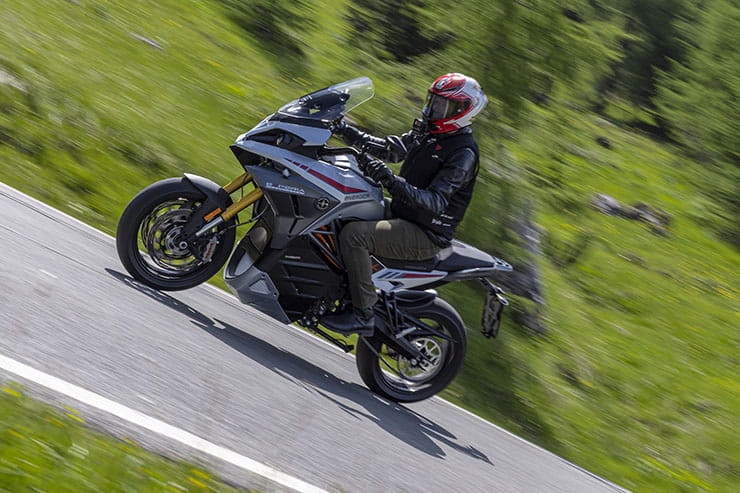Road tax for zero-emissions bikes from 2025
By Ben Purvis
Motorcycle Journalist
18.11.2022
It was always inevitable that as road users switched in growing numbers to VED-free electric vehicles that the Government would need to claw back that missing income. Now it’s happened with the announcement at Chancellor Jeremy Hunt’s Autumn Statement that all electric vehicles will be charged road tax from April 2025.
It’s a blow for riders (and car drivers) who’ve been ushered towards electric vehicles by the idea they’re cheaper to run than combustion-engined machines and is just the latest in a series of sucker punches they’ve been at the receiving end of. It started last December when grants to help buy electric bikes were cut back from a maximum of £1500 to only £500, along with other changes that saw shorter-range moped grants cut to a max of £150 and all grants removed for electric bikes with RRPs over £10,000.
This year the news got worse. Rising energy costs haven’t just sent residential bills soaring, they mean prices for charging electric vehicles have also shot up. In the worse-case scenarios, charging at the roadside could make the cost-per-mile of electricity higher than petrol, and even charging at home the rising costs mean it will take much longer to reach the break-even point where the greater purchase price of an electric bike is offset by the savings in fuel.
Now one of the last remaining financial benefits of electric vehicles – their exemption from Vehicle Excise Duty – is getting torn away.
The Autumn Statement say: “From April 2025, electric cars, vans and motorcycles will begin to pay VED in the same way as petrol and diesel vehicles. This will ensure that all road users begin to pay a fair tax contribution as the take up of electric vehicles continues to accelerate.”
The new plan is complex for electric cars; the rate of tax differs depending on their date of first registration and, for new cars, whether their list price is below of above the £40,000 mark where the ‘expensive car supplement’ kicks in (a somewhat disingenuous term, given that the average new car price in the UK is only fractionally below that). For bikes, it’s simple – electric motorcycles will be classed in the lowest tax group, along everything else under 150cc. The statement elaborates: “Zero emission motorcycles and tricycles will move to the rate for the smallest engine size, currently £22 a year.”
While it’s understandable that the Government needs to recoup the VED that its own cuts to encourage electric vehicle purchases have brought about, buyers who’ve made the decision to pay the high initial cost of an EV on the basis of savings over several years of ownership are likely to be aggrieved to see those savings eroded or eliminated entirely. However, with laws already in place to outlaw the sale of all new non-zero-emissions cars by 2035 and a similar plan being drawn up for motorcycles, the carrot to coax people into buying EVs isn’t needed anymore.
There is one significant remaining caveat over the plans announced in the Autumn Statement: they don’t come into force until 2025, and by then there will have been several more budgets, plus a General Election. There’s plenty of scope for the VED system to change before the 2025 plan is even introduced.
